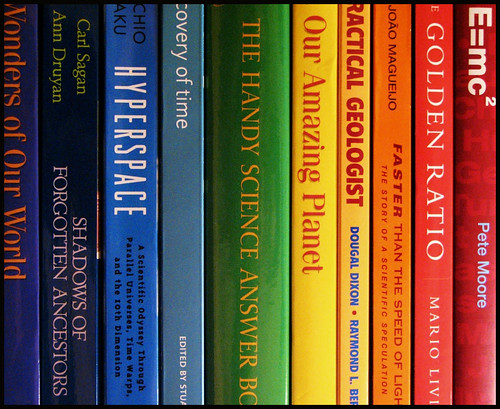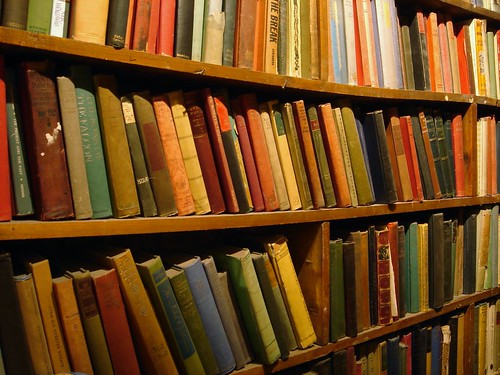
This week I received the page proofs of Indie: An American Film Culture, my book to be published early in 2011 by Columbia University Press. Now finally it looks like a book rather than just a folder of Word documents and image files that I work with on my computer. It has a title page and a copyright page, and section titles and page numbers at the top of each page in interesting typefaces. I've been writing this book for ages so I'm pretty excited for it to be ready for you to read it. A chapter about film festivals and art houses incorporates some research and a few paragraphs from a paper I wrote for a historiography seminar I took in graduate school ten years ago. Much of the conceptual frame was developed for my PhD dissertation, which I defended almost six years ago. So the culmination of this project feels big considering how much of my life it has consumed.
I decided a few years ago not to blog much about this book as a work in progress. Partly it was because I didn't see the topic being particularly timely (indie cinema is still a going concern, but to save myself the angst of seeing the topic as a moving target I have been thinking of it as historical). Partly it was because I was interested in exploring other topics on the blog, as a break from my focus on independent cinema. More so it's been to save the ideas for the published final product, to hold off until it's done.

Blog and book as textual forms can both be thought of as publishing, but each has its own distinctive qualities, expectations we bring to the experience. Each has its own time. As we migrate our reading experience to networks and screens, the book (along with the magazine, journal, newspaper...) is defamiliarized. Now we consider the benefits and detriments of reading paper-and-ink rather than pixels or e-ink, and the old ways seem less natural and more contingent. Maybe now we can appreciate book time as we could not before, can think of how we might want book time to be integral to the experience of reading using our new technologies and interfaces and communities of knowledge. I think of book time as slow and careful time, as time for patient and immersive, even contemplative experience. I don't mean to essentialize too much, and I often use books as reference works, I read only the two pages I need, I skim, I photocopy one chapter, etc. But a book has the potential to have a certain temporal feel if you use it the way I'm thinking of.
My thoughts about book time and blog time are part of a larger fascination with temporality. Lately I've been strangely conscious of the temporal disunity and variability of my life, and in particular of the various forms of media creation and consumption that fill so much of it. I wrote about this last spring at Antenna, when I described the Wii as a time machine taking me back to a nostalgic ideal of my youth in which I have Nintendo games to play. I get a similar feeling watching TV with my kids. Noah, who is almost one, now pretty avidly watches Teletubbies. Seeing him become animated and giggly at the sight of the baby in the sun takes me back to the days when Leo, now six, used to watch it. Leo has reached an age that is familiar to me from my own memories of childhood, and taking him to school and soccer games and piano lessons inspires constant wistful reveries. Watching commercials with him for products he wants to have reminds me of my own lifetime of consumer desires and frustrations.

When I was writing Indie, I would sometimes imagine it as a finished product. At first I only imagined it as a printed monograph with a cover and paper pages pasted together, with my name on the spine, shelved in the N's in part of the library beginning PN199something (LoC). In the past couple of years I have begun to think of it more often as a product for sale at Amazon.com with the "click to look inside" feature. More recently I have started to imagine it as a searchable volume in Google Books, and as a downloadable e-book to be read on a tablet or e-reader. I have begun to think of phrases I use and names and titles that I reference that might come up in a web search. (Are books being search engine optimized yet? They should be.) I wonder if it will be published for the Kindle, and if so what might be the most highlighted passages?

All of this is of course forward-looking, anticipatory excitement. But much of my experience of writing and publishing a book is also marked by time lag. By early next year when Indie is out I will (God willing!) have submitted the manuscript of a second book, which I have been co-writing for the past couple of years with Elana Levine, called Legitimating Television: Media Convergence and Cultural Status. I imagine my feelings about Indie are similar to those of actors who have to go on talk shows to promote a film they shot a year ago, when their more recent work is more fresh in mind. I have to pretend that Indie is fresh as of 2011 when most of it was written at least two years ago, and some parts are from the early oughts. Compared with the instant gratification I have gotten from years of blogging -- you can read my thoughts moments after I write them, they can get a comment or link and it's all NOW -- the patience required by academic publishing is considerable. I have to perform my past self to greet the publication of this new product, and it's not that I'm lacking enthusiasm for the new thing but, well, it's not new to me, not at all. Having a book with my name on it is what's new, but the words and ideas are in the past.
Despite the frustration that comes from feeling this lag, I'm pretty pleased to have been patient. I like the form and expectations of the slow-paced book. I like its unique temporality. A book has its advantages in relation to an article or blog (and not just in its prestige/tenure functions), and even in its new digital formats a book should still maintain many of the things I like about it.

In particular what I have in mind is the argument for books offered by Susan Wallace Boehmer, Editor-in-Chief of Harvard UP in this blog post called "Standing by the Book"
I will restrain myself from quoting the whole thing, but here are some good parts. What is it about books that Boehmer likes?
I like their length. I prefer ideas and opinions and narratives that are just too complicated, too nuanced, to fit into a New Yorker article, or a Wikipedia entry, or a series of public lectures. But at the same time, I like the boundedness of books—the sense you get at the end of 300 or 400 pages that you really have a good firm grip on the subject.
She also likes the book's
division into chapters. Chapters are not like essays. Essays—in a magazine, let’s say—relate to one another sort of the way out-of-town first cousins relate at a family reunion. They have polite conversations, and maybe you’ll notice a little family resemblance, but mostly they come together briefly and then they go away to live their separate lives. Chapters in a book relate to one another the way siblings do: every one of them is looking around at every other one, all the time, sizing them up and figuring out when to play together and when to get out of the way. A book with chapters is a tight-knit little family: there’s tension in every relationship, but they’re still all in it together.
(You really should go read the whole thing. There's a part about how a table of contents ought to be a poem, what a beautiful idea.)

I also like the book's long-term temporality. There are books on my shelf that I have had for most of my life: a dictionary and a Bible that I used in grade school, an atlas I got when I was 13, children's books that my parents read to me as a little boy. I'm not very confident that the Kindle books I bought to read on my portable device will be accessible to me five or ten years down the road. E-books seem ephemeral to me, and old-fashioned paper books seem durable. But whether digital or not, a book is a pretty good way to make ideas last.

Photos, from top to bottom, are by flickr users ginnerobot, paper.clip, sapheron, simiant,, sapheron, gadl, and .michael.newman., used under creative commons licenses.
1 comment:
Excellent write-up, Mike, especially your thoughts on temporality, creating books, and consuming books (or any medium, for that matter).
Post a Comment